|
(excerpt from Chapter 10 - Banjos, Bohemians and the Barbary.)
And then the dreaded letter arrived that would take Dan away from me too. Willis wrote to tell Daniel that he and William Hearst, the new young publisher of the San Francisco Examiner, were in discussions to design schematics for a proposed San Francisco World’s Fair in 1900. His first assignment was to go to Chicago and meet with the Chief Architect for the 1893 Chicago Columbian Exposition, Daniel Burnham. He was to write and draw a series of articles about the site and bring back ideas and information on cost and construction. He wanted Daniel to join him.
0 Comments
In 1896 the San Francisco Call newspaper featured an article referring to "Sanchez' bar" in Monterey. The big news was that architect Willis Polk and artist Charles Rollo Peters were prepared to enjoy a drink and view the famous art and writing on the walls when they found the bar with a new name and new ownership. Worse yet, the new owner had destroyed the precious work by painting the walls. The destroyed vignettes were known works by William Keith, CR Peters, Jules Tavernier, Daniel Polk, Albert Bierstadt, John Muir, Ernest Piexetto, Xavier Martinez, Robert Louis Stevenson and many more. Willis was so upset at the destruction, he immediately took a train back to San Francisco.
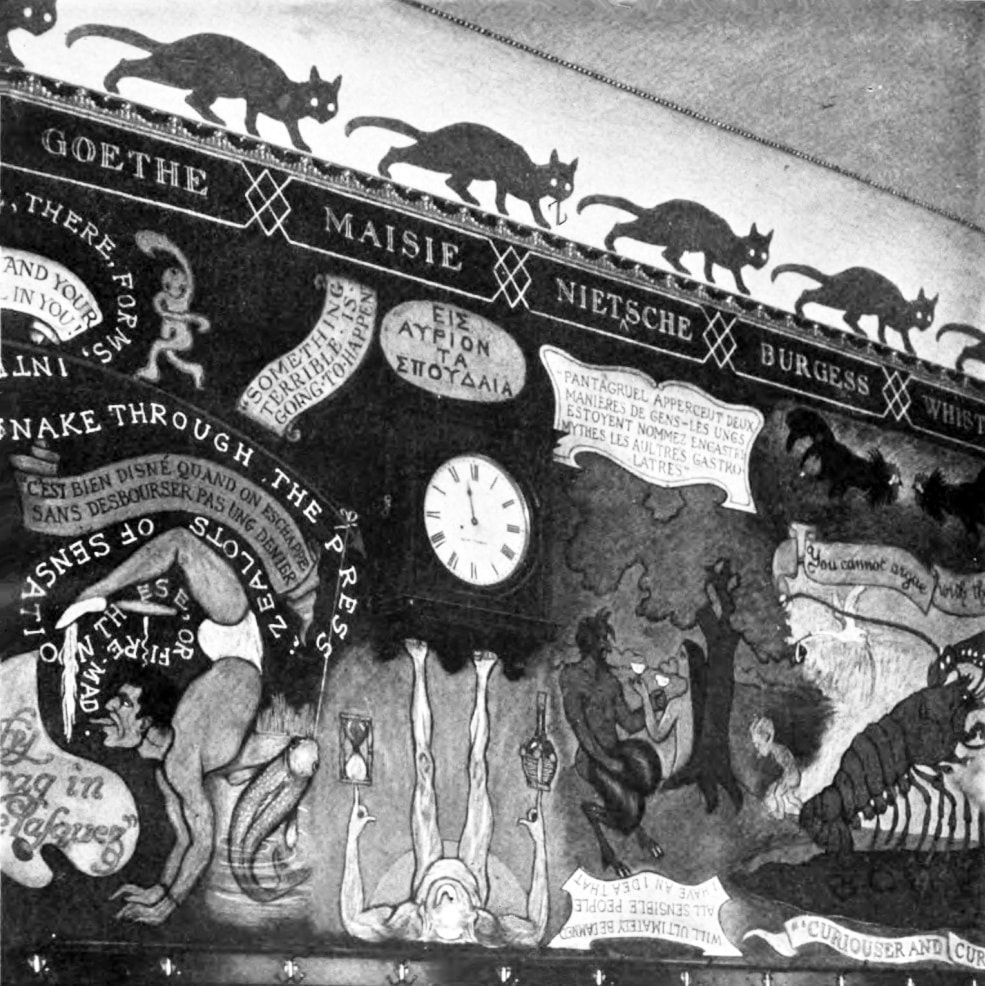 Original Coppa's Restaurant was a legendary bohemian gathering place in the Montgomery (Monkey) Block where the Transamerica Building now stands. Its crowning glory were the wild murals, created by the artists and writers who made the place their second home sitting for hours at the center table in a long, narrow room with 21 tables. The leader of the San Francisco Bohemians was Porter Garnett, a writer, editor, designer and co-creator, with Gelett Burgess, of the 1895 literary magazine The Lark. The group also included the painters Xavier Martinez, Ernest Peixetto, Maynard Dixon, poets and writers George Sterling, James Hopper, sculptor Robert Aiken, Willis and Dan Polk were also frequently in attendance along with many others. The late evening libations were decidedly misogynistic and never included wives. Women were included on occasion if they were pretty enough, or a current girlfriend for a one time review.
The 1916 Preparedness Parade. courtesy US Library of Congress
Over a century ago, tensions about the war in Europe, labor unrest and the Committee for Law and Order exploded. Quite literally on July 22, 1916, a suitcase bomb killed 10 and seriously injured 40, at the city’s “Preparedness Day” parade—one of the largest parades in the city’s history with 51,000 marchers participating. Everybody seemed to be there including Phoebe Hearst leading delegations of women down Market street. The bomb exploded at 2:06 at Market and Steuart Streets.
The idea behind a “preparedness” demonstration, which also took place in New York and Washington, D.C, was to support the American military in the event of the nation entering World War I - which we did one year later. But many were against this interference overseas, and labor leaders protested it was another get rich scheme for industrialists on the backs of working men. So after the mystery bomb blast left little evidence, the police and government was eager to find the criminals. Immediately socialists, anarchists and pro-labor organizers were targeted. Two labor activists, whom the papers referred to as "radicals", were convicted and jailed then released in 1939 after the police were accused of witness tampering in a mob scene trial. This view from Nob Hill looking up Taylor at Jackson to Vallejo Street - is half a block from the summit of Russian Hill. The true summit lies at Vallejo between Taylor and Jones. Also seen here are the cross streets of Pacific Avenue and Broadway. Ina Coolbrith Park is located just across the Vallejo stairs from the house seen in the upper left corner - The House of the Flag.
Today the 225 step Vallejo Stairs are on both sides of Taylor Street. The House of the Flag is on the SE corner of the Vallejo stairs and Taylor Street. It was named a San Francisco landmark in 1972 and has become part of the lore of this special neighborhood which was home to a coterie of the most creative and interesting San Franciscans of their time. It also largely survived the fire and has many pre-earthquake buildings still standing watch from the top of Russian Hill. |
Some stories that couldn't make the book in full ... but need to be told! Editors welcomed - sign up below.
STORIES
WR HEARST PLANS SONG: DAISY HOT SPRINGS 1882 A WILLIS POLK GIFT THE RLS CONNECTION 1896 EARTHQUAKE TALES FROM COPPA PANDEMIC OF 1889 THE BOMB THAT SHOOK SF MILAN:CITY OF WATER POLK ON THE MAP FEATHERS, FASHION & FLY FISHING RARE AVIATION FILM - WWI 1914-17 1906 SAN FRANCISCO WTF FILES - TECHNOLOGICAL GET ME OUTTA HERE! NO HORSES, NO TENTS, NO $ DAISY IN FRENCH LITERATURE DAISY ON FILM! THE WHITE DEATH THE SYMBOLISM OF FLOWERS POSTE DE SECOURS WWI TRAVEL 1900: LONDON TO PARIS DAISY: REST IN PEACE KEITH'S, DRANE'S & KENTUCKY MOTHER: MISSOURI COMPROMISE Topics
All
|


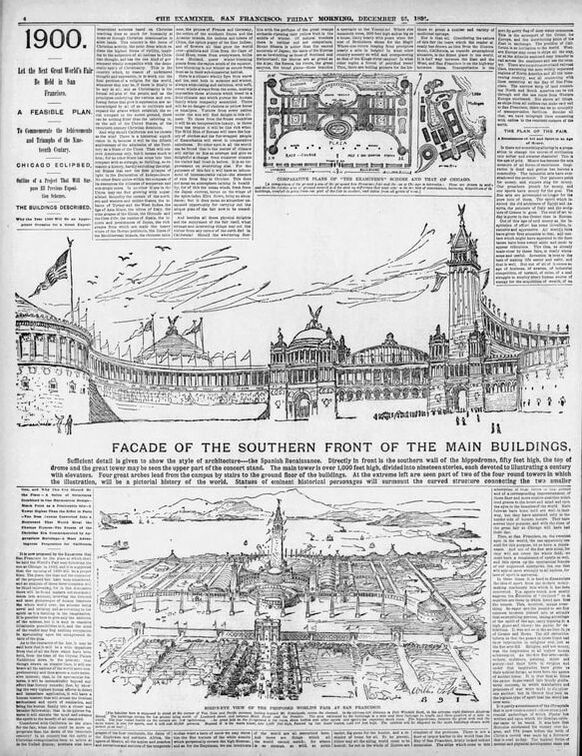
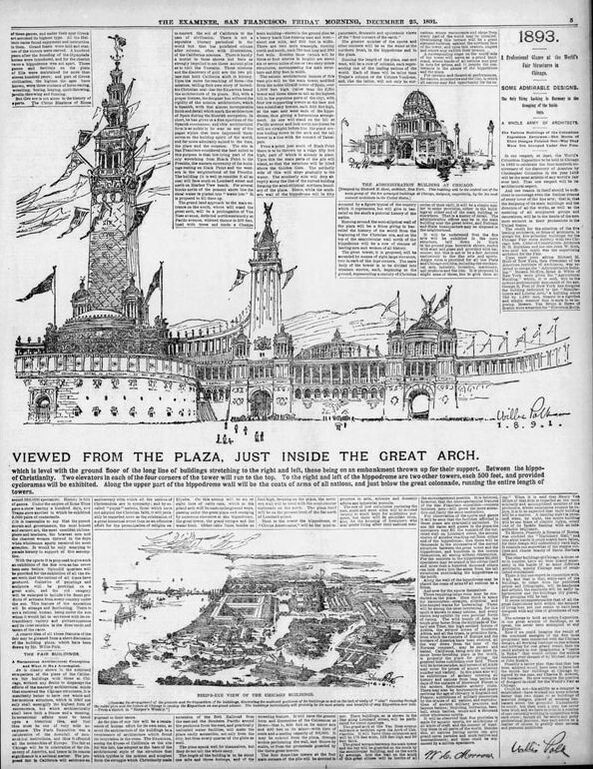
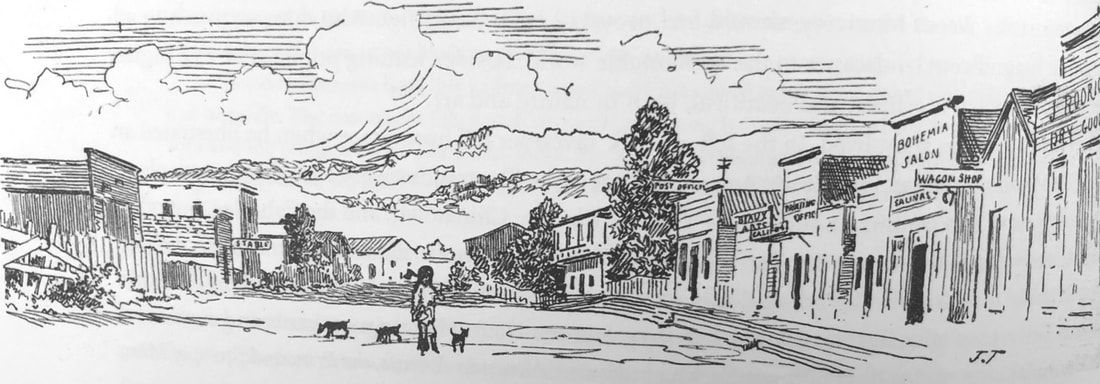
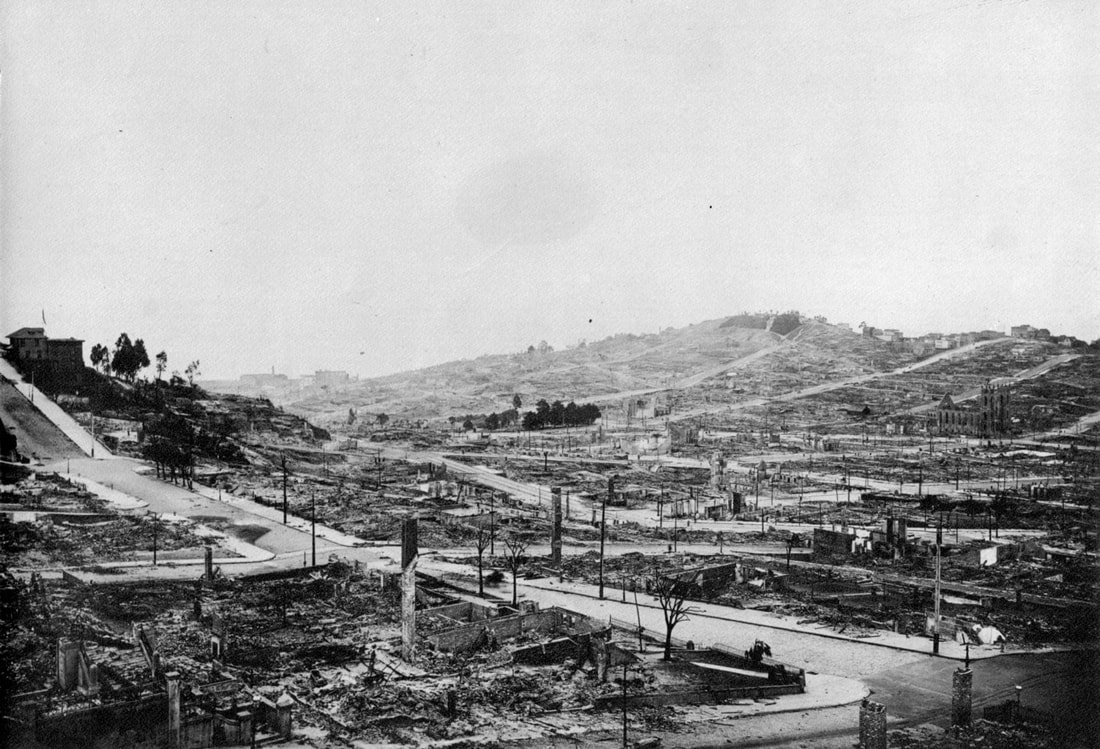
 RSS Feed
RSS Feed